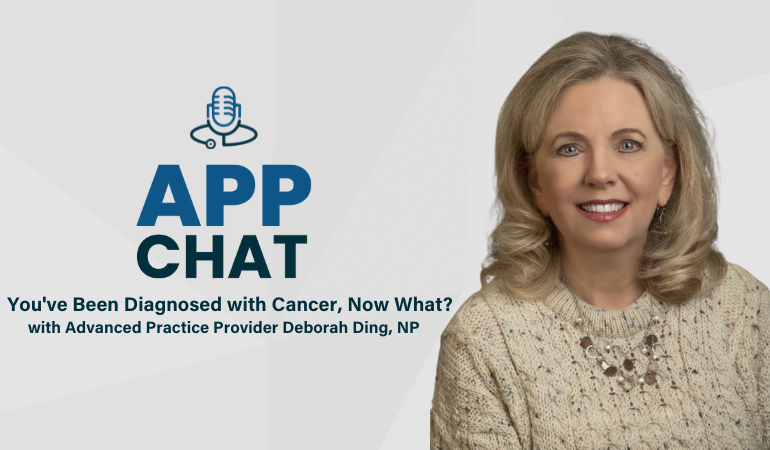Receiving a cancer diagnosis is never easy. For patients, this news can come as a shock and deciding on appropriate next steps can be a daunting and difficult task. Deborah Ding, CRNP at Clearview Cancer Institute, said that she tells her patients to breathe first and foremost before having an informed conversation about what should happen next.
“A lot of times I have patients tell me they feel overwhelmed and that things happened so fast. And they do happen fast. However, you also have time where you can stop and say ‘Okay, what does this mean, what are my options, and where do we go from here?'” said Ding.
Another important step at the beginning of a cancer diagnosis is asking the care team any questions that may arise. It is not uncommon to have questions about your care plan, next steps, or important decisions to be made about personal health.
Cancer care includes many treatment and care options that can be tailored to meet the specific needs of patients. According to Ding, the goal during cancer treatment is to have the least amount of disruption in patient’s normal, everyday life as possible. Discussing each patient’s job, routine, and the events going on in their lives provides the care team with the necessary information to make informed decisions about treatment options, specific to each patient.
In addition to the conversations with the care team, Clearview Cancer Institute has numerous resources, both online and in-person, that are available to patients, including support groups and educational classes. Ding says that the employees at Clearview Cancer Institute are also a valuable resource.
“Everybody in this building is a resource and they’re here because they want to be here; it’s not just a job. And they love to teach and help,” said Ding. “You’re not in this alone. We are here to help you and follow you and if we don’t know something, we go ask and we find answers. There are so many resources from so many different areas that it just makes for a better road to recovery.”

